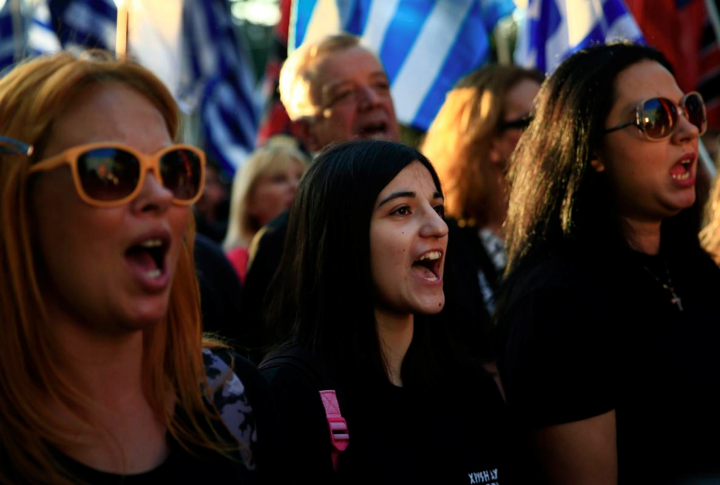
On Thursday, December 3, MDS and the Bachelor in Global and International Studies (BGInS) brought a team of academics and activists to Carleton in order to explore issues of migration, belonging, and citizenship in contemporary Europe.
Migration has become the focus of many headlines throughout the world. In Europe, the ongoing arrival of thousands of people each day is testing the borders between nations and their commitment to international humanitarian and human rights law. It is also challenging us ethically to clarify the extent of our obligations to those within and outside our borders. Yet alongside these dilemmas, the unraveling of austerity measures and political crises are calling into question the ability of the traditional nation state to manage the affairs of its people.
Taking this theme as a point of departure, this MDS funded event took place on Thursday December 3rd from 4:30 to 6:30pm. Two of theinvited guests were part of a campaign known as “the Equal Citizens: Right to Citizenship” campaign run by a Greek NGO named Generation 2.0 for Rights, Equality & Diversity and a Paris-based online citizen mobilization platform named We Sign It. They collaborated to run a campaign that reached international, European and Greek audiences and co-developed and implemented a variety of grassroots tools that would ultimately contribute to the successful passing of a new citizenship law for children of migrant parents. Bringing the experiences from the campaign to bear on the themes of the Carleton meeting, the event in Carleton University’s St. Patrick’s building explored issues related to migration, belonging, and citizenship. It explored reflections on the campaign’s successful establishment of new legislation and the challenges of contemporary citizenship today. These issues were discussed in relation to campaigns being launched to transform the ways that contemporary states manage emigration and
related entitlements.
A group of seventeen faculty and students assembled. The attendees watched the film, 360 Memoires: The Children of Migrants. The film represents a story that began with the assertion that in most states that are members of the European Union, children born in a given country are entitled to citizenship. It then explained that in Greece today there are up to 200,000 children and young adults born in Greece to immigrant parents who are without citizenship status. By outlining feature stories of select youth’s lives, 360 Memoires: The Children of Migrants delved into the reality of what it is like to be the child of migrant parents and living in Athens, Greece today. It clarified how, until recently, Greece denied citizenship to children of immigrant parents, making them foreigners by default. In July 2015, under the newly elected Syriza government, a new citizenship law was passed that allowed a majority of these children the immediate right to apply for citizenship. However, bureaucratic and administrative obstacles resulting from the lack of allotted funds stalled the application process necessary for people to acquire citizenship. The film raised issues related to the experiences of discrimination and exclusion that these youth faced and continue to face. It highlighted the ways in which vulnerable and unprotected diasporic populations from Africa, the Middle East, China, South Asia, the Balkans, and the Philippines fought for citizenship rights under conditions of economic austerity, extreme racism, and a government known for its antiimmigrant policies. This story line set the framework for a discussion about the ways in which various contemporary campaign strategies are being used to propel new human rights agendas through institutional, popular, and local mobilizations.
Following the film, the panelists – Tina Palivos, Lucia Cantero and Baki Youssoufou – engaged in a discussion with the audience about the challenges of migration and citizenship and the related transformations in the way that grassroots movements are addressing such issues. The participants discussed the changing nature of migration, citizenship and activism and reflected on the role of campaigns in mobilizing sociopolitical support.